The Toyota 4runner is one of those vehicles that you tend to fall in love with after owning it for a period of time. For many people, their 4runner is like a family member and for those of us that feel that way, it’s important that we do what we can to make them last forever.
This article will serve as a complete guide to 4runner maintenance and will give you plenty of tips for extending the life of yours. These are pretty special vehicles and we owe it to them to keep them around for as long as possible.
View this post on Instagram
Despite being one of the most dependable vehicles on the planet, 4runners won’t last forever on their own. Neglecting maintenance and general care can and will kill ANY vehicle and these are no exception.
The difference is that when cared for properly, the Toyota trucks won’t just survive a few extra years – they’ll outlast nearly anything else on the road!
The recipe for getting hundreds of thousands of miles out of your 4runner is quite simple:
- Stay on top of routine maintenance
- Upgrade known points of failure
- Avoid rust at all costs
- Keep it clean (except for when it’s dirty)
It’s that easy!
Recommended 4runner maintenance
You can avoid many issues with your 4runner by staying on top of routine maintenance. Your owner’s manual will have the proper intervals for your specific model so we’ll stick with a more broad approach in this article.
Oil changes (engine, transmission, differential, transfer case)
One of the easiest and most obvious ways to prolong the life of your 4runner is to stay up to date on oil changes. In general, conventional oil should be replaced every 3,000 – 5,000 miles and synthetic can be pushed to 7,500 – 10,000 miles.
It’s a matter of very simple mechanics – metal parts that come into contact with each other (and generate heat!) need to have clean oil to lubricate them. As soon as the oil becomes dirty, these components begin to wear prematurely. This is the case for your engine, transmission, and differentials. Keeping your oil clean is easy and cheap.
These Toyota engines can withstand a ton of abuse. Will skipping an oil change kill your 4runner? Probably not. (I can attest to this after admittedly hitting 10,000 km on conventional oil. Whoops!) But if you intend to keep yours running for many decades, changing your oil often will certainly improve your odds.
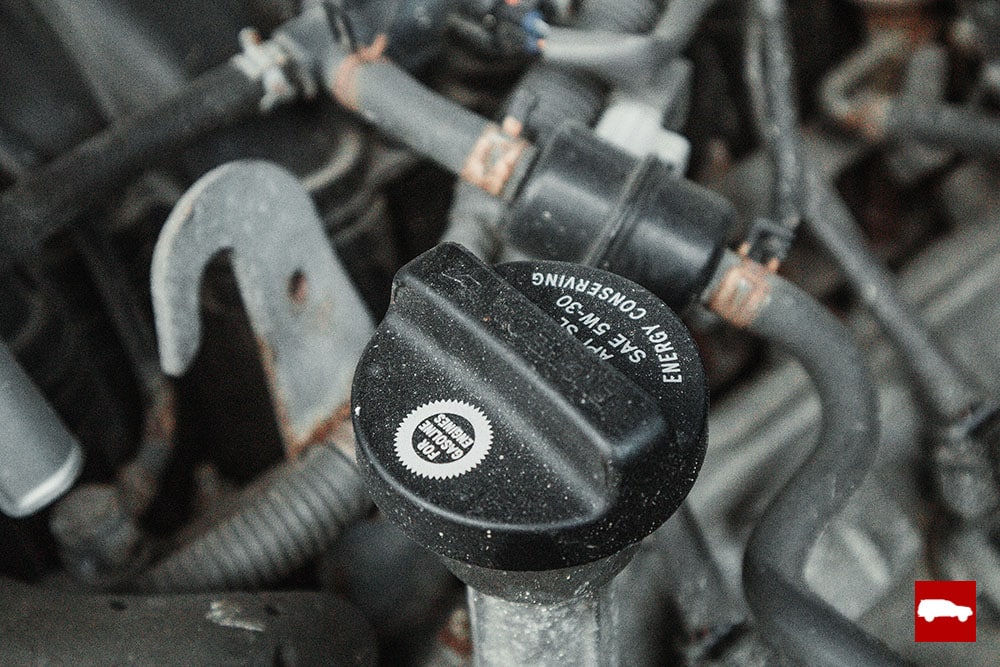
We have a separate article about 4runner oil change intervals, so make sure to check it out if you’re unsure of what oil to use and how often to change it.
Changing your transmission fluid requires a bit more of a discussion. Should you drain and fill it, do a fluid exchange, connect it to a pressurized machine to flush it, or leave it alone? There are differing opinions on this. One thing most of us can agree on is that it should probably be replaced with clean fluid at some point, especially if you do a lot of towing.
I dig into some of the different options for replacing your transmission fluid in this article.
What about your differentials and transfer case? Well, the good news is that you don’t have to worry about them nearly as often. But that doesn’t mean you can ignore them either.
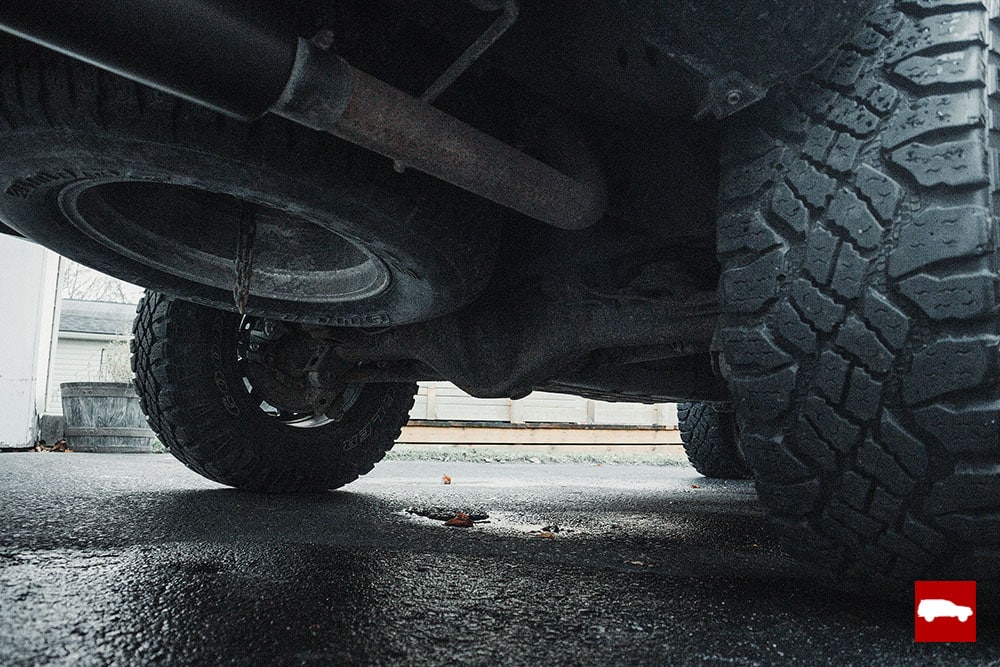
Toyota recommends changing your differential fluid every 20,000 miles. You can adjust that however you like – if you do a lot of heavy towing or off-roading, you might want to do it more often. Some people on the 4runner forums have claimed to have no issues with crazy long intervals (we’re talking 100,000+ miles) but I personally wouldn’t take it that far.
Head over to this article for a complete guide to changing the differential and transfer case fluid.
Greasing drivetrain joints
Greasing the drivetrain joints on your 4runner isn’t just a way to make it last longer. When it comes to the driveshaft, it can actually get rid of (or at least dampen) the clunk you feel when coming to a stop.
Check out this video:
Fluid changes (coolant, brake fluid, power steering, etc)
Changing fluids like your coolant, brake fluid, and power steering fluid seems to be less common – you don’t really hear as many people talk about it. That doesn’t mean it isn’t a good idea if your goal is to make your 4runner last forever.
Your 4runner’s coolant contains corrosion inhibitors that can break down over time. Changing it more often than recommended won’t offer any benefits (unless your engine has other issues such as leaks or a blown head gasket) but it’s not something you should neglect either.
Head over to this article to learn more about when you should be flushing your 4runner’s coolant:
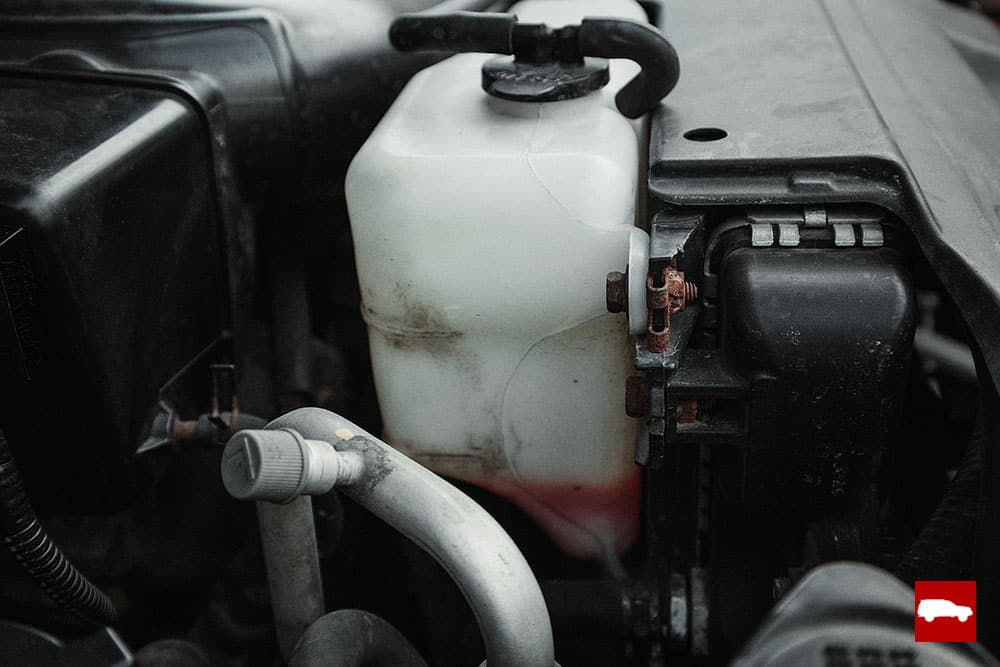
There are 2 different types of coolant typically found in Toyota 4runners: Long Life (Red) and Super Long Life (Pink). These have different intervals so it’s a good idea to check the cap on your coolant reservoir to confirm what is recommended for your specific model.
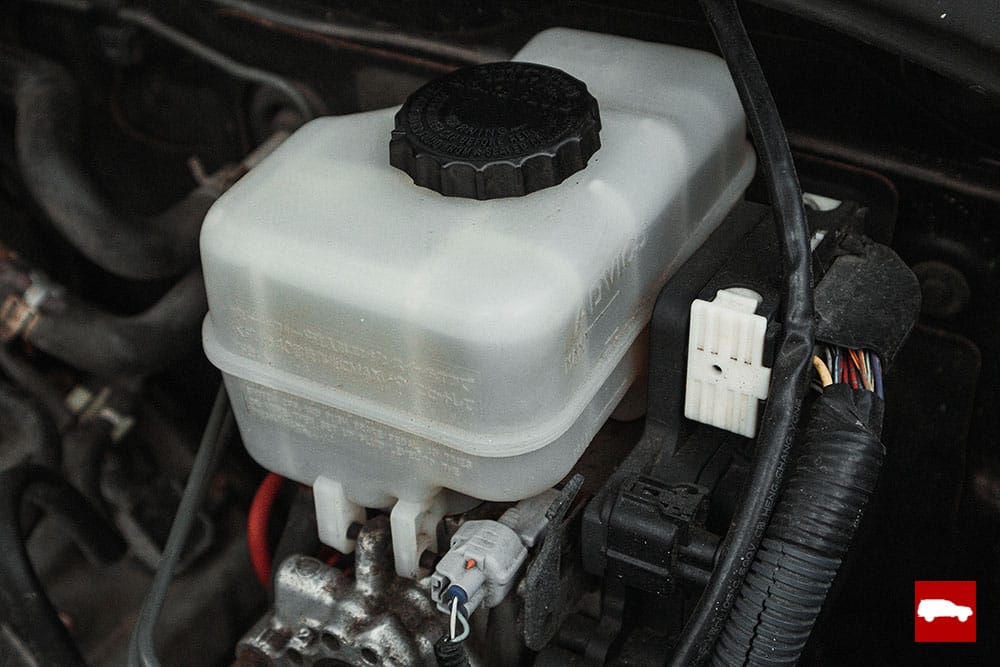
Brake fluid and power steering fluid also don’t seem to have exact recommended replacement intervals. Brake fluid tends to absorb moisture so it might be worth replacing every once in a while. If you own a 4th gen or older 4runner, you’ll likely have to replace sticky brake calipers at some point so that’s a good time to flush the whole system with fresh fluid.
The power steering fluid reservoir tends to get stained with crud when the fluid gets dirty over the years. If yours looks that way, you might want to consider replacing the fluid.
Check out this article for more about whether or not to replace your power steering fluid:
Tune-up (Spark plugs and coils)
Ignition components are going to wear out over time regardless of how reliable an engine is. Worn out spark plugs and coils likely won’t cause any threat to your 4runner (unless they’re bad enough to create a really bad misfire) but there are other reasons to perform a tune-up when it’s recommended.
Neglected ignition components can negatively impact your fuel economy and performance. Let’s be honest, our beloved 4runners aren’t exactly gifted in either department so they need all the help they can get!
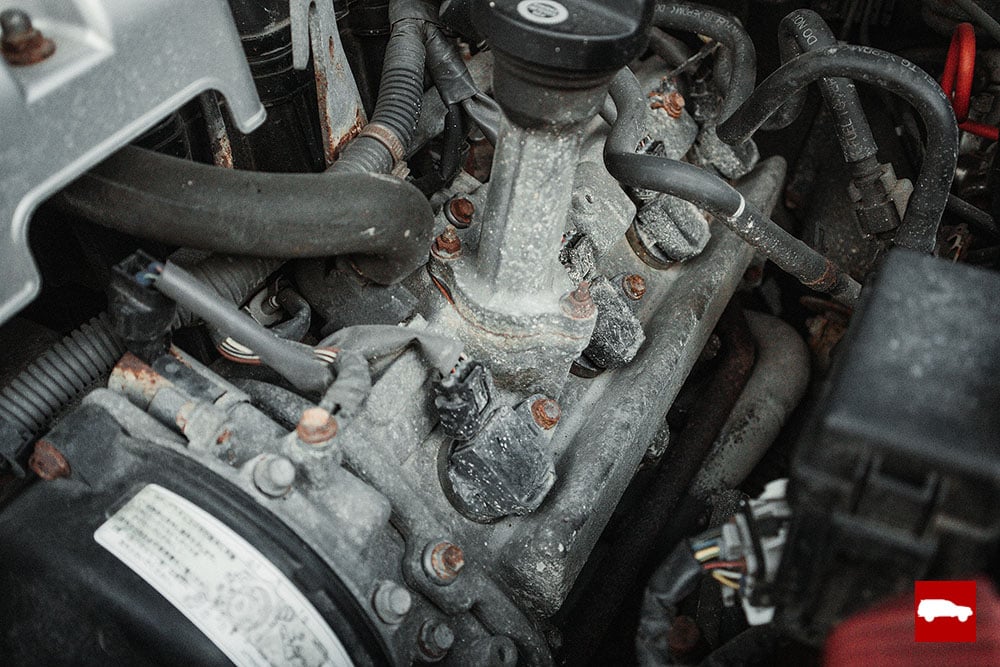
Toyota recommends replacing your spark plugs every 120,000 miles (30,000 miles for older models). It’s ok to do this more often if you prefer, the only downside would be the added cost and the time to do it.
Air filter replacement
If you think about it, our engines are nothing more than big, noisy, air pumps. They suck air in and push exhaust gas out. So I’m sure you can see how important it is to make sure our 4runners can breathe well.
Keeping your air filter clean is one of the cheapest and easiest ways to keep your engine happy and your fuel economy where it should be. Forcing your engine to choke through a dirty filter might not kill it, but it will certainly cause extra strain on it.
Your air filter should be cleaned or replaced (depending on what style you use) whenever it appears to be excessively dirty. There isn’t really a set mileage or time limit because it’s heavily affected by the environment your 4runner is driven in. For example, people who live on a dirt road or go off-roading often will need to change theirs far more often than the typical city slicker.
Inspecting your air filter with every oil change is a good habit to get into although it likely won’t need to be changed every time.
I have a separate article all about 4runner air filters so feel free to go check that out.
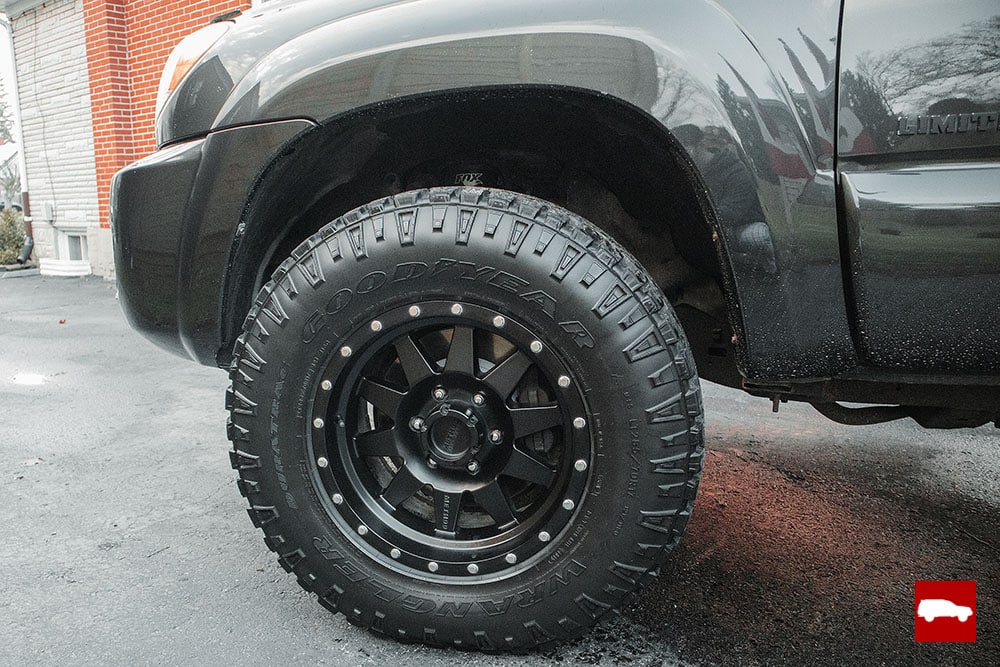
4runner brake service – how often should brakes last?
The life of your 4runner’s brakes is another thing that really depends on how it’s driven. Owners have reported anywhere between 30,000 mile and 150,000 mile intervals which is clearly a huge discrepancy.
Typically, your 4runner will tell you when it needs a new set of brakes. Most brake pads are designed to make a squealing noise when they’re getting low on material. Warped brake rotors will cause a noticeable shake or pulse when driving. If you’re hearing or feeling either of those, it’s time to have your brakes inspected.
Tire rotation and why it’s important:
Keeping your tire wear equal on all 4 wheels will make them last longer and your 4runner drive smoother. On models with full-time 4WD, it’s necessary for the health of the drivetrain as well.
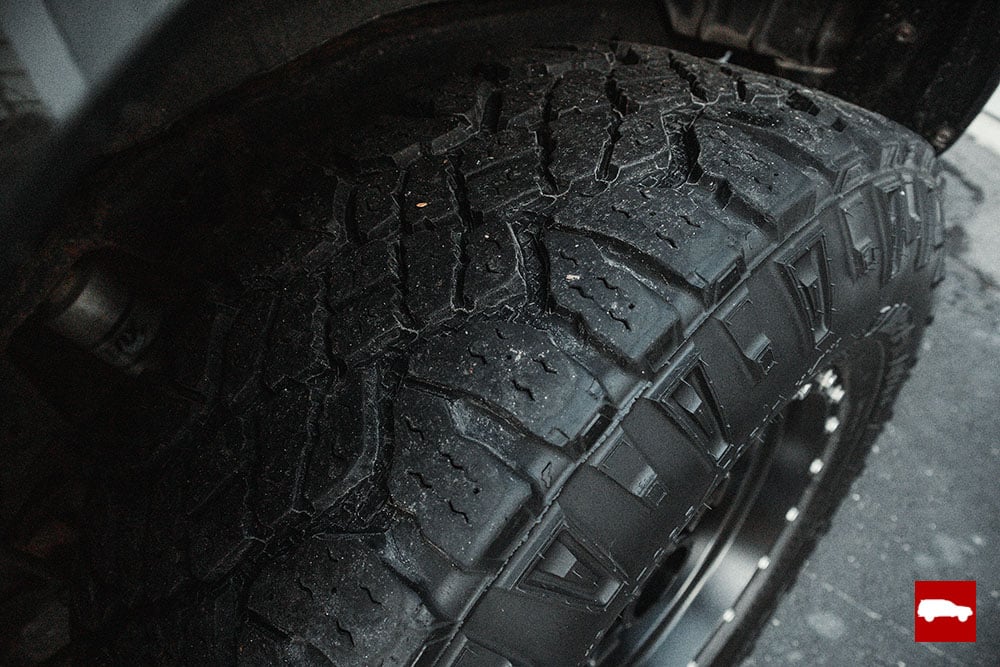
If you’re running more aggressive off-road tires on your 4runner, this becomes even more important. All-terrain and mud-terrain tires tend to be more susceptible to uneven wear and the best way to combat that is to keep rotating them every other oil change. This will keep them wearing evenly despite the difference in weight distribution front and rear (also if your alignment is slightly off).
Avoiding potential issues with your 4runner
Aside from routine maintenance, another great way to prolong your 4runner’s lifespan is to avoid any problems it might be known for.
Check for diagnostic codes
There are times when your 4runner will store a diagnostic code in the back of its mind without triggering a Check Engine light to alert you. Scanning your ECU for these diagnostic codes is a good way to find out about potential issues that might be showing up in the future.
Ignition misfires or O2 sensor codes might be hurting your fuel economy without you realizing it. Scanning your 4runner’s computer is quick and easy with a code reader like FIXD.
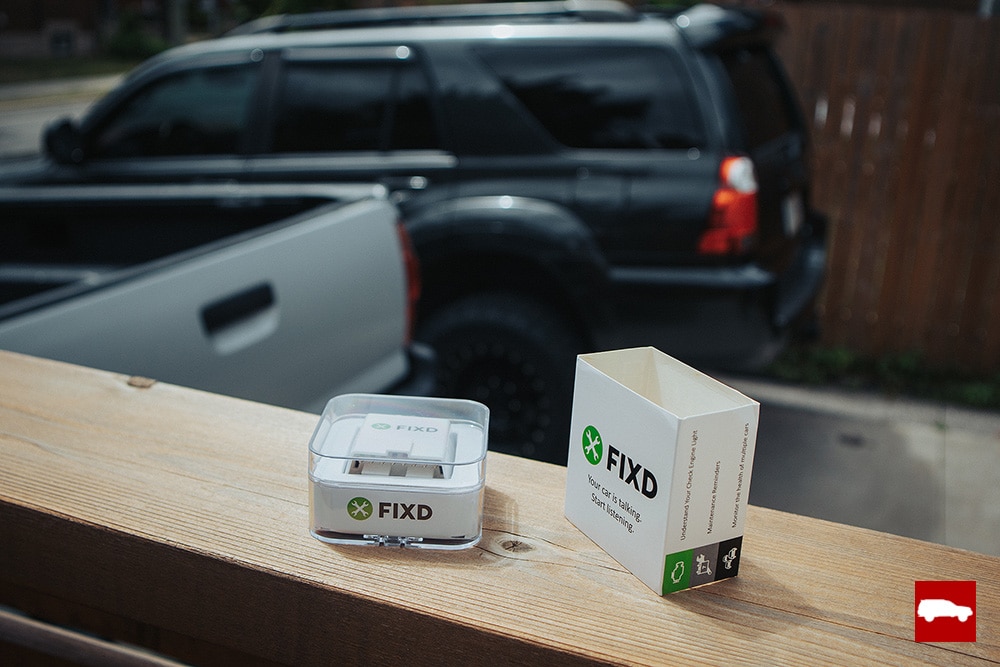
Unlike bulky, traditional code readers, this one from FIXD consists of a small sensor you plug into your 4runners OBD2 diagnostic port. Then you connect it to your smartphone by installing the FIXD app to get access to everything that’s going on.
I keep mine in the console of my 4runner since it takes up so little space. This way, I can pull off the road and find out why the ECU is upset as soon as I see a check engine light.
Upgrade known failure points
For example, the late model 4th gen V8s like mine are known for needing costly repairs to the Secondary Air Injection System. Rather than waiting for a problem to arise, I installed a bypass kit from Hewitt-Technologies. This disables the system while keeping all of the components in place.
Now I don’t have to worry about it throwing a check engine light and putting my 4runner into limp mode.
A set of stainless steel Doug Thorley headers keep me from having to worry about cracked exhaust manifolds ever again. They are a much better design and have a lifetime warranty. They produce more power and torque, too.
X-REAS shock absorbers are great while they’re working but eventually will develop leaks. This can be expensive to fix since you can’t replace one shock at a time. If you’re going to be lifting your 4runner, you might as well cut to the chase and choose a suspension setup that replaces the X-REAS system with traditional shocks. You’ll have no worries about leaks in the future.
Avoiding rust and corrosion
It’s no secret that rust is the biggest killer of Toyota trucks. If you live in an area that uses road salt in the wintertime, the future of your 4runner is at risk. In a lot of cases, rust is inevitable no matter what we do. But there are some things we can do to at least give ourselves a fighting chance:
- Keep it as clean as possible
- Touch up any rock chips or exposed metal
- Have the undercarriage oil sprayed
I interviewed our local rustproofing expert in this article to find out everything we need to know about oil spraying – check it out!
Why detailing your 4runner will make it last longer
You might think that auto detailing is just for supercars or those weirdos that want to keep their Tesla looking brand new for as long as possible. But did you know it can help 4runners like yours to last longer too?
Road salt isn’t the only thing on the planet that causes metal to rust. You might be surprised to know that regular dirt and mud contain plenty of corrosive properties as well. So keeping your truck dirty all the time isn’t just a matter of not caring about its appearance – it’ll potentially cause it to rust sooner as well!
Taking the time to rinse off your undercarriage every once in a while can be really helpful. It also allows you to visually inspect your 4runner for damage or wear that might otherwise be covered up with dirt/mud.

Using products like waxes, sealants, and ceramic coatings will protect your 4runner’s paint and make it easier/quicker to clean. Being exposed to the sun’s UV rays over time without anything to protect it can diminish your clear coat to the point of it flaking off. If you leave it until then, the only solution is to have it repainted.
Caring for your 4runner’s interior will also help it to last longer. Your leather seats are far more likely to develop cracks and rips if they’re dirty and unprotected. Much like your paint’s clear coat, waiting until there’s visible damage will require an expensive fix that could have been avoided by some basic detailing.
Refrain from abusing your 4runner
In conclusion, it’s best to remember that your 4runner isn’t invincible. Be kind to it! Yes, it can withstand more abuse than the average vehicle, but that doesn’t mean you can treat it like a mud bogger or jump it like a trophy truck and still expect it to get you to work every day.
By all means, use it for what it was intended for. 4runners LOVE to explore and get dirty. When you’re off-roading though, it’s always good to stick with the “go as slow as possible and as fast as necessary” mantra. You’ll be enjoying your beloved 4runner for many more years if you treat it with respect, and care for it accordingly.

Tim is the creator of Canadian Gearhead. His experience with auto detailing and working for Toyota shows through all of the articles posted here. He runs the Canadian Gearhead site and YouTube channel full-time now and currently owns a 2007 4runner, 2006 Tacoma, and 1991 MR2. Read more about Tim:



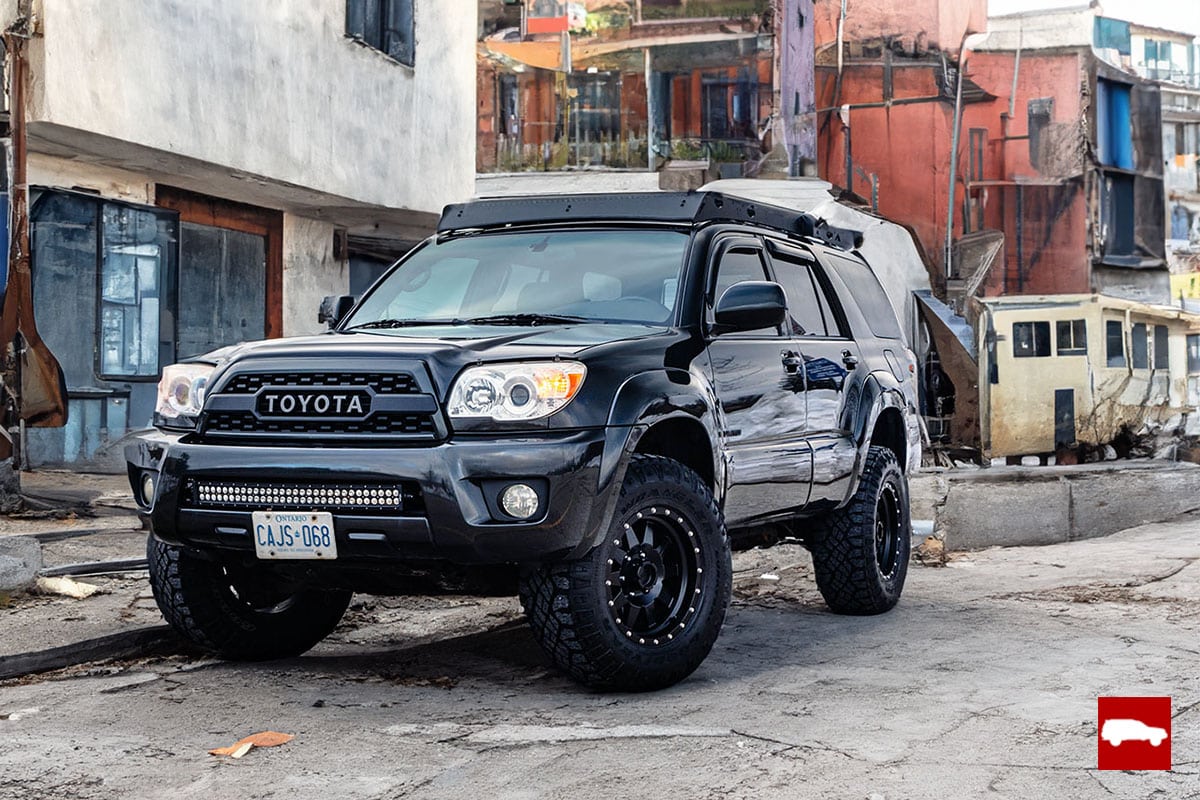
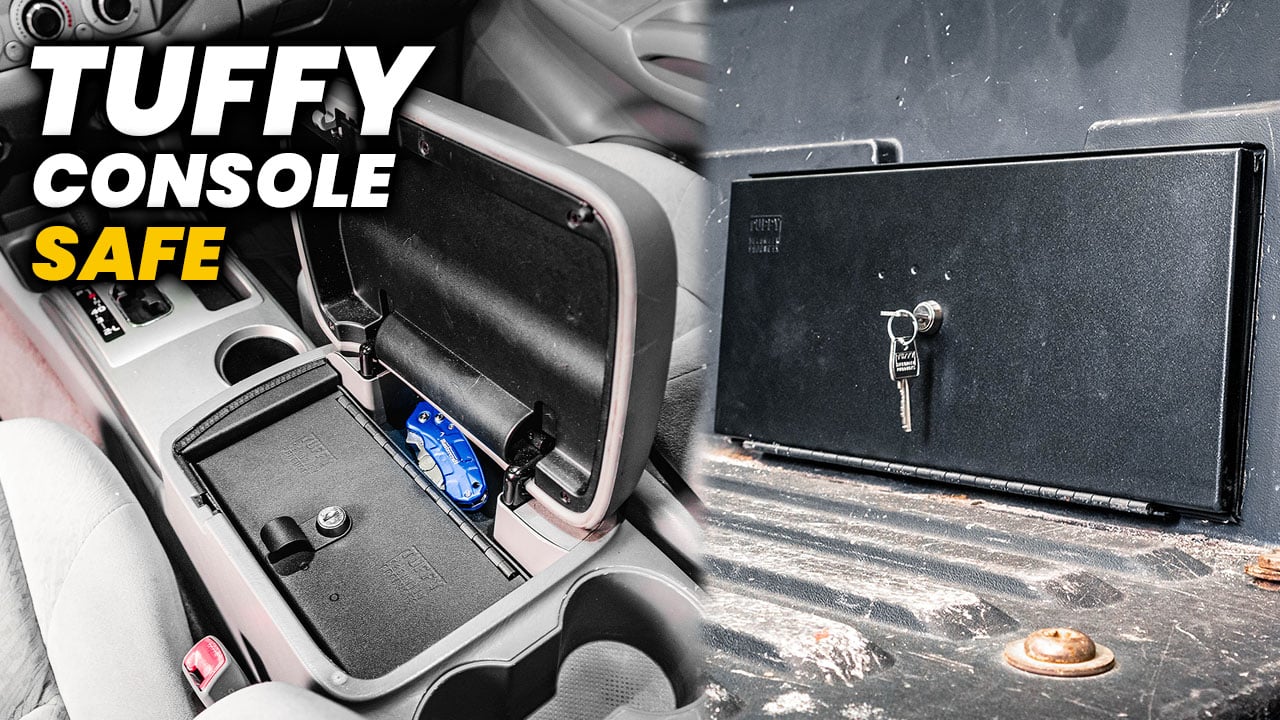
Leave a Reply